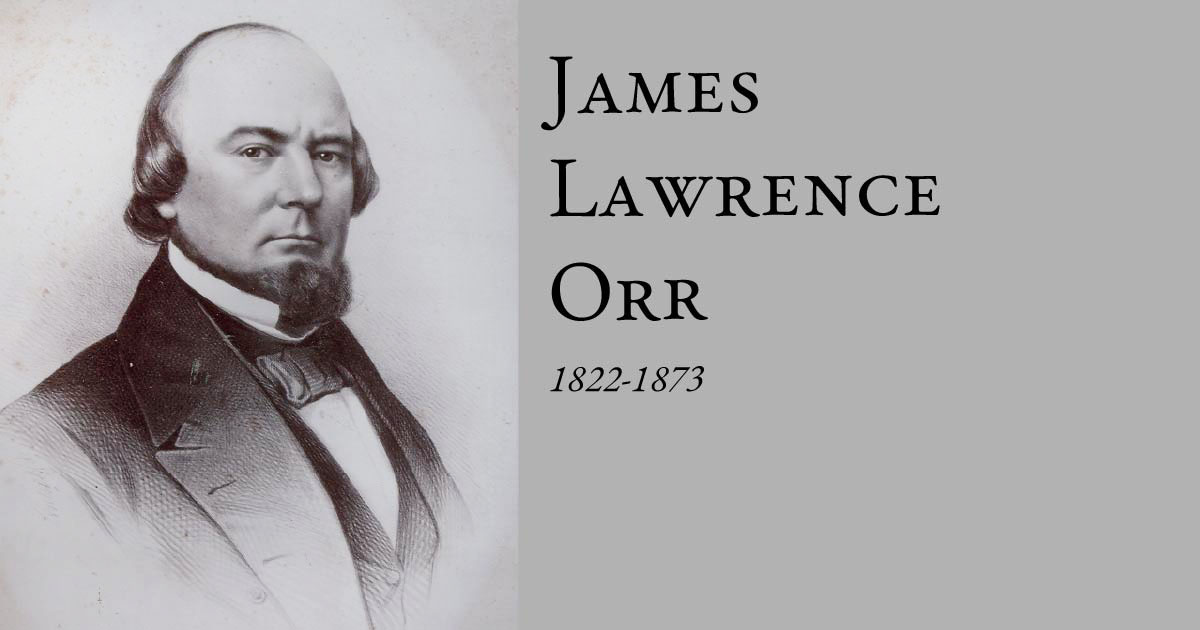Visit
 The Official Web Site of the State of South Carolina
The Official Web Site of the State of South Carolina

James Orr was born in the Pendleton District in 1822 and grew up in Anderson County. His parents were Christopher and Martha Orr. He graduated from the University of Virginia and started his law practice in Anderson in 1843. Mr. Orr was also the first editor of the Anderson Gazette. By 1844, he was to start his rise in politics upon election into the state legislature. Representative Orr worked tirelessly to improve the public school system and to reform the parish system of representation that gave the Lowcountry unfair power in the state.
At the age of twenty six, Orr became a United States Congressman and would serve in the House of Representatives until 1858 when he stepped down. In his final two terms, the Congressman had served as Speaker of the House, the youngest man to hold that position. Orr strongly opposed the secession of the southern states; however, when this occurred he followed South Carolina into war.
In the spring of 1861, he recruited men for Orr’s Regiment which consisted of men from Pickens, Abbeville, Marion, and Anderson counties. After training these troops were sent to Charleston. In December 1861, Orr was elected to the Confederate senate and left his commission to serve in the new Confederate capital of Richmond, VA.
In 1865, James Orr became Governor of South Carolina after the state constitution was amended to allow the direct vote of the people rather than being elected by the legislature. Governor Orr showed firmness and fairness as he restored order in South Carolina. Sworn into office on November 29, 1865, his term saw the establishment of the state penitentiary, the provision of artificial limbs for Confederate amputees, the reopening of South Carolina College and other schools, and the rebuilding of the state’s governmental infrastructure.
By 1868, Orr was elected circuit court judge and served in this capacity till 1872 when he accepted the position of Minister to Russia. He had been appointed to this position by President Ulysses S. Grant.
Minister Orr arrived in St. Petersburg early in 1873 after a long and very tiring journey. Following diplomatic protocol, he visited several important dignitaries during particularly harsh weather conditions. Having been worn down by the travel, Orr became ill and died in Russia on May 5, 1873 after serving for only a few days as Minister to the country.
James Orr had two major funeral services, one in New York where an impressive Masonic funeral was held. Later, his body was transported to Anderson where a second funeral was held on June 18th. His body laid in state at the Masonic Temple in downtown Anderson, and he is buried at Anderson’s First Presbyterian Church Cemetery.
Visit the Anderson County Museum to see the Orr Monument.